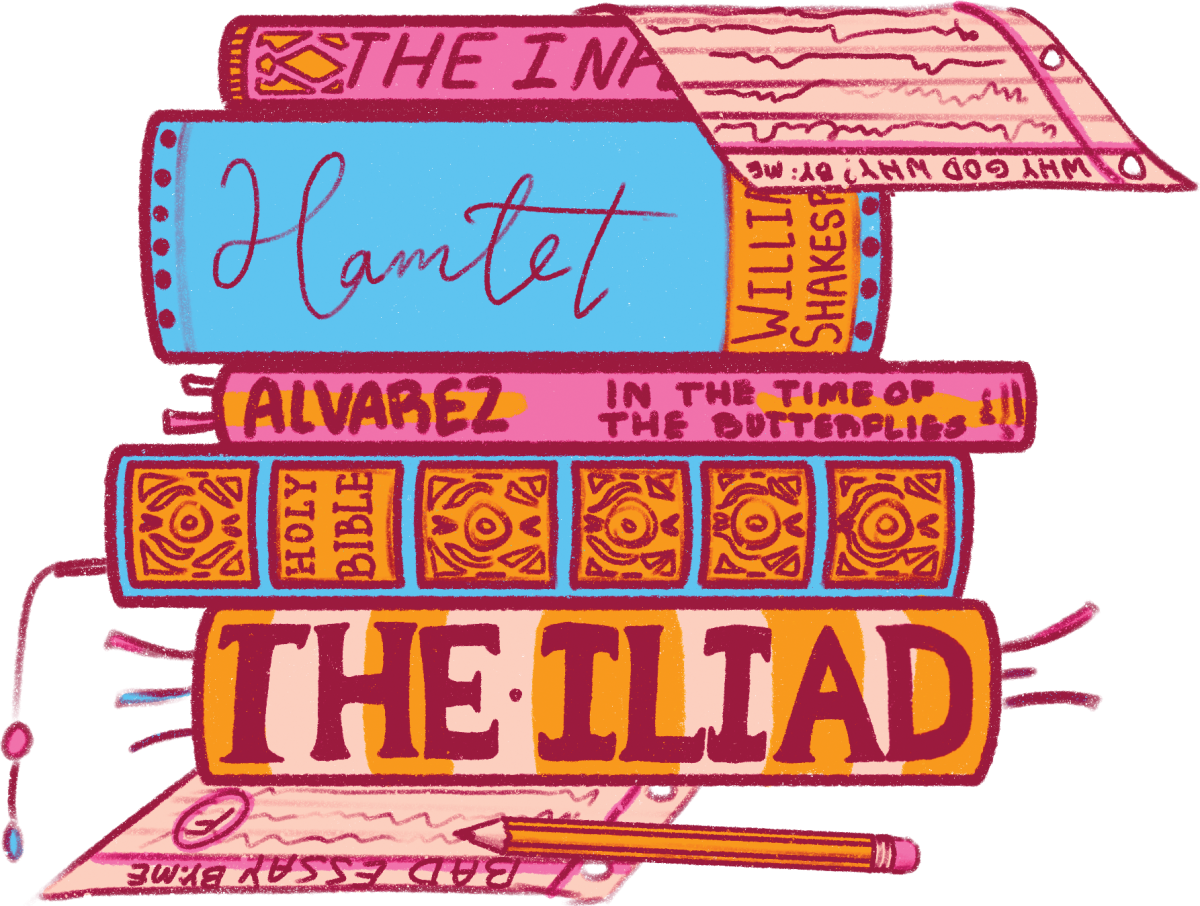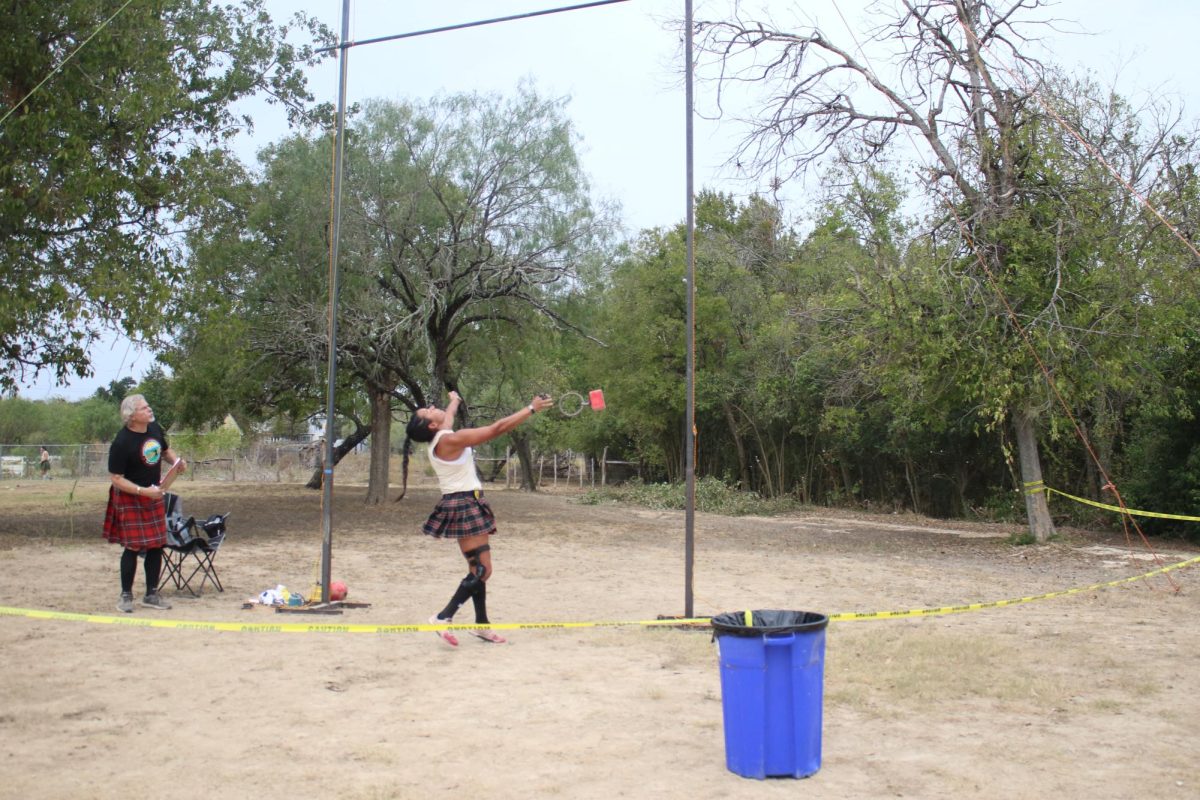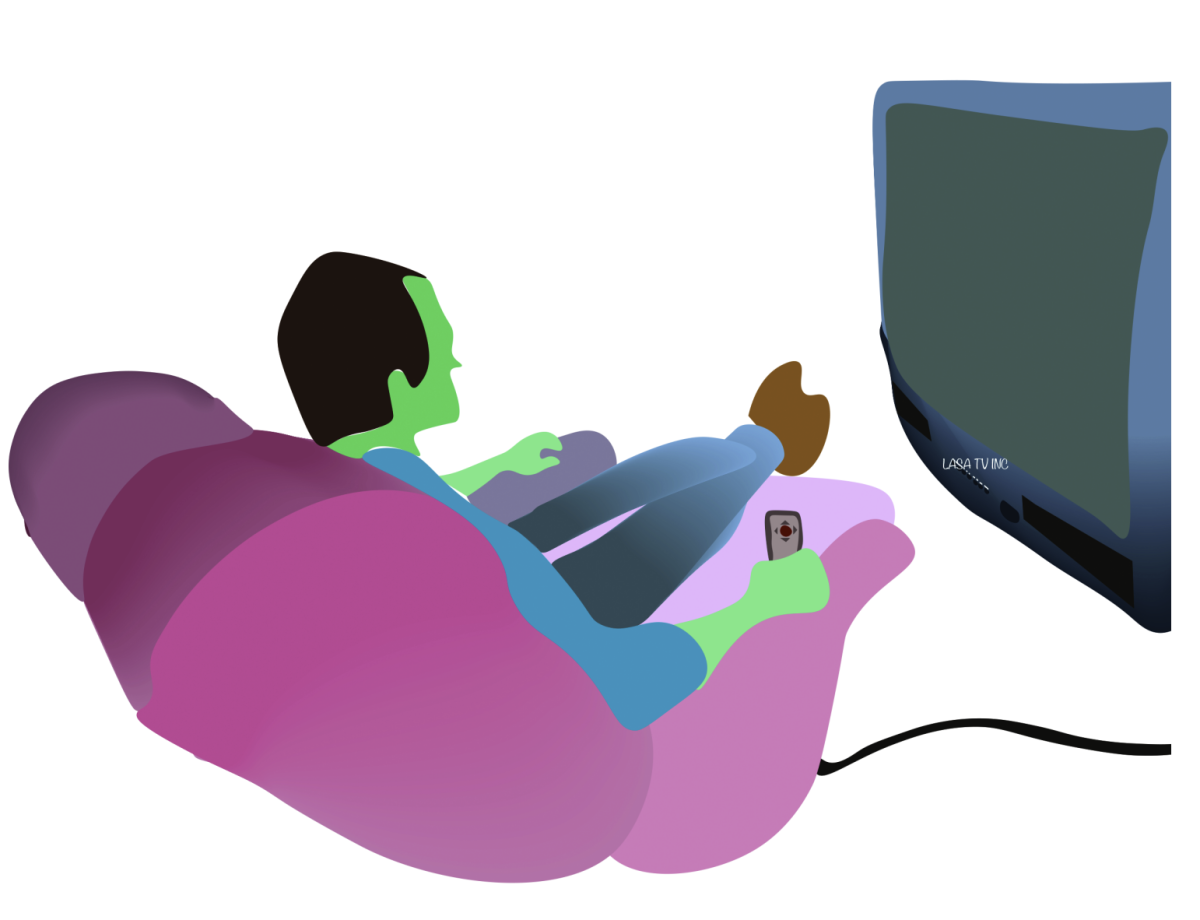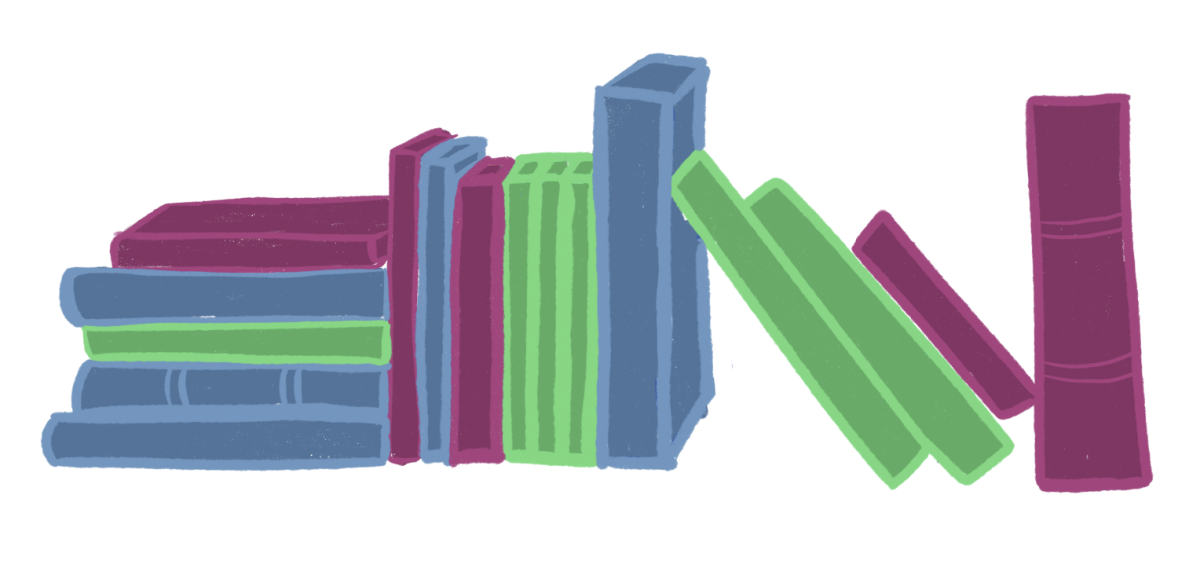Texts upon texts are given to students throughout their education. At LASA, students are required to read about four to six books each year as part of the curriculum, most of them selected by their teachers, eliminating any personal preference for certain books in most of the projects based on literature.
There are ongoing studies, such as the Krashen study, that analyze whether reading as an assignment versus for leisure affects one’s love for reading. Stephen Krashen, an American activist and educator, started the discussion over the drive to read back in the 80s, which inspired many studies replicating his findings. These results demonstrate that when you read for the sake of fun, it in turn leads to more reading.
Daniela Recalde, an English I and IV teacher at LASA, gave some insight into her students’ experiences. She wishes everybody saw reading as pleasurable as she does.
“I think students think that when you make reading an assignment, it automatically turns it into a task instead of it being something that’s for leisure,” Recalde said, “even though literature by design is supposed to be something that is entertaining and something that’s relatable and connects us to the larger human experience.”
Freshman Akweano Udosen, a student in Recalde’s English I class, thinks reading is fun but doesn’t agree that reading at school is enjoyable. She struggles with finding a balance between reading for enjoyment with the amount of schoolwork she’s given.
“[LASA] requires me to do a lot of homework,” Udosen said. “So though I would like to read more at home, so I could enjoy it, I don’t have the time. It becomes more of a stressful thing because I’m like ‘do I have enough time to go to bed?’”
For Udosen, reading at school doesn’t motivate her to read more outside of class. Instead, it lowers her desire to open a book.
“It makes me feel like reading is a lot of work,” Udosen said. “It can make you feel like picking up a book is super hard, but it’s actually not. But it makes me feel that way.”
LASA librarian Elizabeth Switek has more knowledge of the Krashen study and agrees with it. She believes that having the ability to choose what you read is what motivates students to continue reading outside of school.
“When you get to choose, you are more likely to want to read the current one [book] and you are more likely to read the next one,” Switek said.
Recalde agrees with the idea that book choice is key, and she tries to promote this at LASA. She noticed that when students are able to pick what they read, their attitude immediately changes.
“One way that we try to find that sweet spot of students reading for leisure, of the sorts, while still learning necessary skills is by having choice units,” Recalde said. “The seniors, for example, are currently starting their Best Books project in which they get to choose a book to read and analyze with a partner. When students are given agency in choosing their task, the ‘task’ part of it lessens, and it becomes a little more palatable for the students—a little more sustainable and enjoyable for the learning process. Our required texts aren’t bad, but as soon as you say, ‘You get to choose your book,’ the whole tone of the class changes and students become instantly engaged.”
Recalde also notes that literature meant for school use is supposed to be educational and beneficial for student learning. Choice reading does improve students’ motivation to read, but students have to realize that in order for teachers to fully educate them, this can’t always be done.
“Books are meant to be mirrors and windows,” Recalde said. “We are supposed to be able to see ourselves in them, as well as explore worlds and concepts previously unknown to us. It is our job, as teachers, to give you the skills you need to read, understand, analyze, and evaluate pieces of writing. But it is just as much our job to give you the opportunity to apply that broadly, not just on the written works that we’ve chosen for your core curriculum. Don’t get me wrong, the core curriculum is good, but this is a magnet school for both liberal arts and science, so the learning opportunities should extend far beyond the core.”
The English teachers and librarian work together to give students some of this free will by adding choice units to the curriculum and offering students books in the library each year. This encourages them to want to read in the future.
“Ultimately what we’re trying to do is develop you guys [students] into just being adults that want to read,” Switek said.







